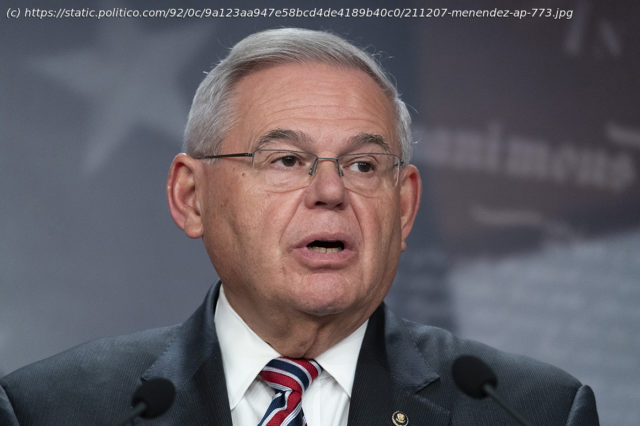Differences over the annual defense bill emerged as President Joe Biden was meeting virtually with President Vladimir Putin of Russia.
While Presidents Joe Biden and Vladimir Putin were discussing Russia’s military buildup on the Ukrainian border Tuesday, Congress unveiled a defense policy bill that the head of the Senate Foreign Relations Committee called a “missed opportunity” to deter Moscow. A provision in the sprawling annual legislation would modestly boost U.S. military assistance for Ukraine, but lawmakers declined to give Biden additional tools to push back on Putin, as the Russian leader prepares for what U.S. officials say could be an invasion of its neighbor. “It would have been good to send a bipartisan, bicameral message now,” Sen. Bob Menendez (D-N.J.), the Foreign Relations Committee chair, lamented in a brief interview. “Why wouldn’t we want Putin to understand the consequences he will face if he chooses to launch another incursion into Ukraine?” It wasn’t for lack of trying that the House and Senate left stringent penalties for a Russian invasion of Ukraine off the table. Partisan squabbling over the annual defense bill left congressional negotiators with little time to finish up the legislation before the end of the year. The Senate was on track to vote on two amendments to the National Defense Authorization Act last week that would have imposed harsh sanctions on Russia — one offered by Menendez that would effectively cripple the Russian economy if Putin moved into Ukraine, and another by his GOP counterpart on the committee, Sen. Jim Risch of Idaho, that would have sanctioned the gas pipeline running from Germany to Russia known as the Nord Stream 2 pipeline. But some Senate Republicans objected to the final list of amendments slated to receive a vote on the Senate floor, causing Democratic leaders to abandon the traditional process and rely on the House and Senate Armed Services committees to hammer out a consensus bill.
Home
United States
USA — Political Congress frets over ‘missed opportunity’ on Russia’s Ukraine aggression






